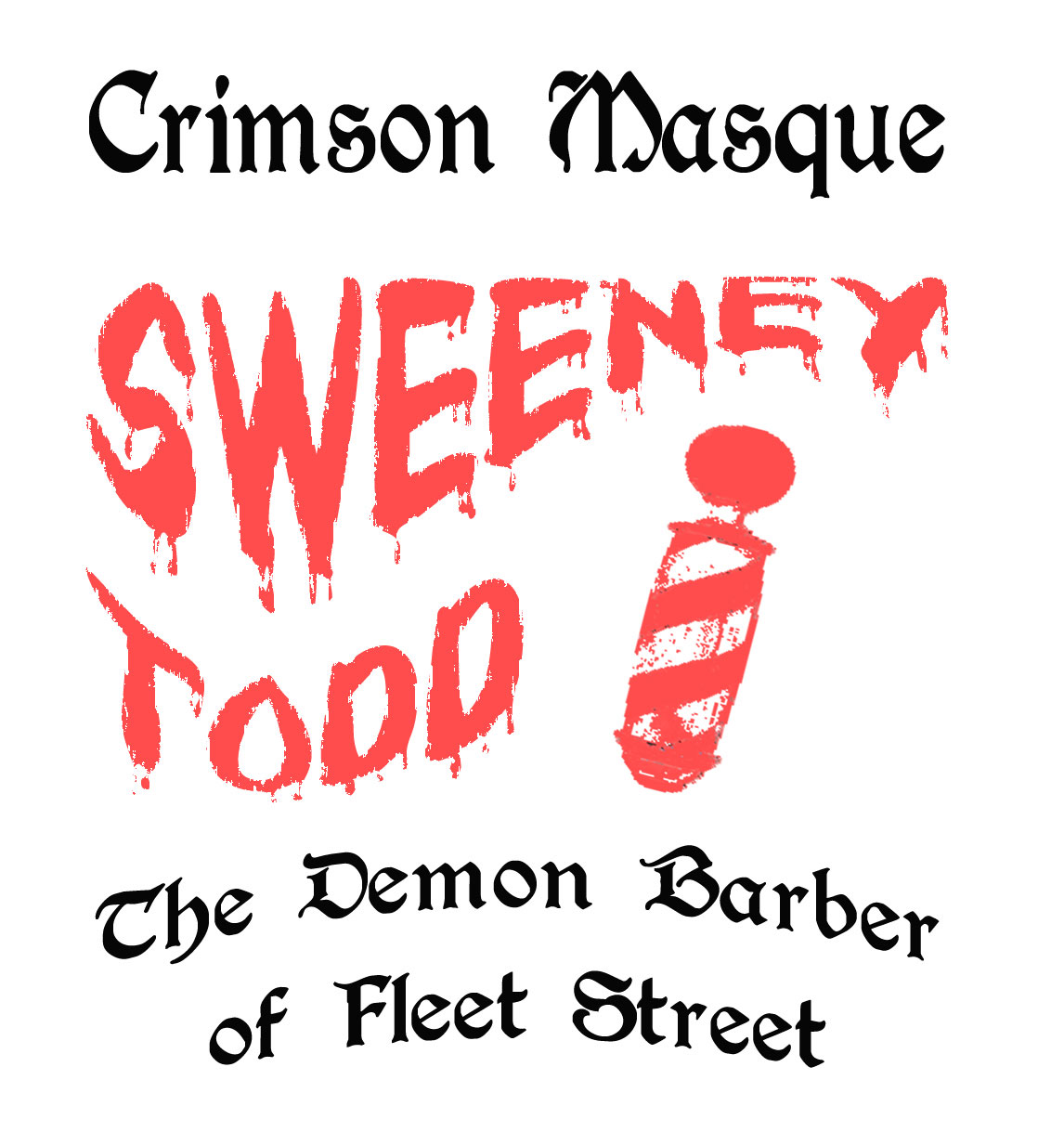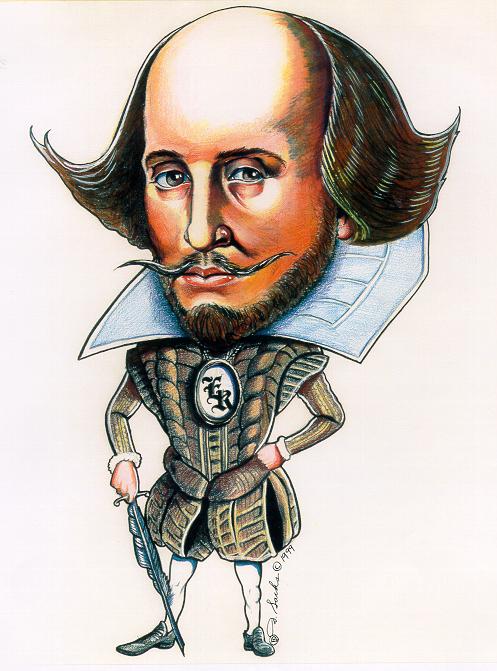|
In This Issue: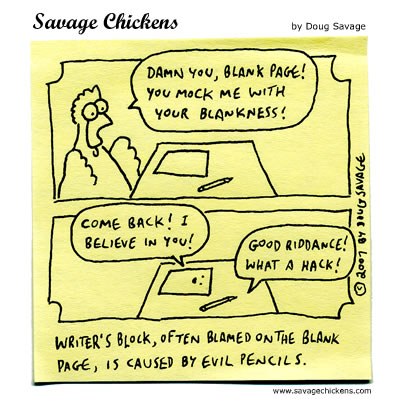
*Viva
Inglese
by Noelle Templeton
*Alumni
Spotlight: Paige Halpin
by Fannetta Jones
*Today's
Great Expectations
by
Alex Nall
*Courses
to Keep an Eye on Next Year
by the World Renowned MC
English Professors
*Survey
Says!
*Announcements!
*Words
of the Month
*Mellinger
Tutoring Hours
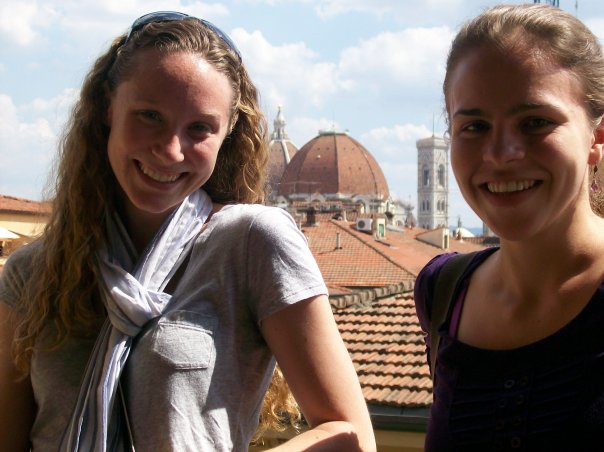 Viva
Inglese
Viva
Inglese
by Noelle Templeton
As English majors, we are
taught to cherish language, respect its origins, and apply or bend
its rules with care and consideration, but I did not fully appreciate the power of words until I was unable to communicate. In
August of last year, I fled Monmouth for Florence, Italy to study
art and history through a program with the
Associated Colleges of
the Midwest (ACM).
I expected my semester abroad to hardly incorporate my English
degree, other than the occasional visit to the birthplace of
Dante
(whose church, by the way, is a single room filled with baskets of
letters professing unrequited love and became my favorite location
in the city). Of course the architecture was amazing and the
city still carries the influences of Michelangelo and the Medici, so
I thought amidst all of this visual art, I might have a break from
language and literature. Somehow, my study of the Florentine
dialect and culture
has revamped my love for English; actually, it enhanced my respect
for the power of words in
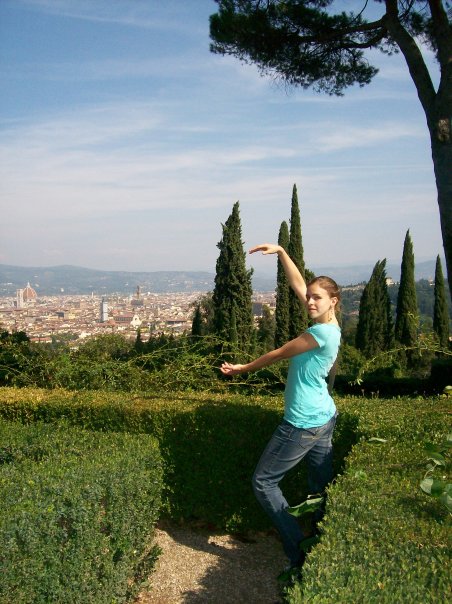 any
language. any
language.
Knowing only a handful of Italian
phrases, I treasured those words while abroad, grew excited when I
heard them in passing, and used them too frequently to blend in.
Living with an Italian mother and daughter provided me with daily
culture studies over delicious dinners, and they were quick to share
the latest slang or ancient proverb with my roommate and I, pictured
above, and we delighted in the silly or bizarre translations of
Florentine idioms. Upon seeing something wonderful, one might
exclaim, “fa un buco!” or “dig a hole!” Of course there were
daily misunderstandings and cultural faux pas, but I think the
language was created just to mess with foreigners. Why else
would the phrases “to get lost” and “to get naked” sound
distressingly similar?
The funny thing is, living in Italy has helped me appreciate the
English language more, along with all of our expressions which are
impossible
to translate, like “off the wall.” Some don’t make any
sense to me but can delicately express an otherwise ugly
situation: “three sheets to the wind,” for example. Many are quite
lovely. I especially like the saying, “to collect one’s thoughts,”
both for the sound and the image. English may sound more harsh and
less chic than Italian, but it has just as many beautiful maxims and
clever phrases as any other language, and is sometimes just as
confusing, even to the fluent.
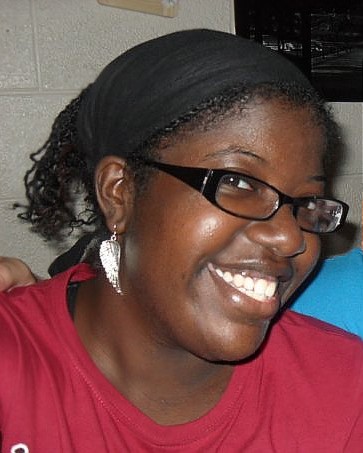 Alumni
Spotlight: Paige Halpin Alumni
Spotlight: Paige Halpin
by Fannetta Jones
One question that constantly bounces around in the mind of any
college student is: What am I going to do when I graduate? This
question seems to become especially present in the English
department, due to the wide array of opportunities allotted for
those of us with this chosen major. In thinking about the fact that
we are closing in on the yea r
and many students are probably beginning to get curious about their
futures, I decided to catch up with one of the English Department's
star alums, Paige Halpin, to see how she's been handling life in
the "real world"
post-Monmouth College. Here's what she had to say: r
and many students are probably beginning to get curious about their
futures, I decided to catch up with one of the English Department's
star alums, Paige Halpin, to see how she's been handling life in
the "real world"
post-Monmouth College. Here's what she had to say:
What year did you graduate?
2009
What was your complete major?
I was an English major with a
History and 19th Century Studies minor.
What is your current occupation?
Professional student. Wait, no.
Graduate student, which pretty much means I'm a professional
student/reader. I'm in my first year of a two year Master's program
at Loyola University Chicago.
When you first entered the
English major, did you imagine it would take you to where you are
now?
I planned on becoming a high school English teacher when I began the
major. While I still want to be in a classroom someday, the context
has changed. If someone told me my sophomore year that after
graduation I would be in a history graduate program I probably would
have told them they were crazy. But after giving it some thought I
wouldn't have deemed it completely implausible because I u nderstood
the beauty of a liberal arts school. I'm
happy with my journey thus far and I'm excited for what's ahead of
me. nderstood
the beauty of a liberal arts school. I'm
happy with my journey thus far and I'm excited for what's ahead of
me.
How did the English department
and/or Monmouth College prepare you for where you are?
Well, the English Department certainly
had an impact on the way I approach history. I'm very interested in
cultural history and my background in literature greatly helps. I
was always interested in the historical context of literature and
that helped push me toward history. Though the writing styles for
English and History are different, the English
department taught me to be a better writer and to not be
afraid to complicate ideas. I
learned how to be a critical reader by studying English and History.
I am grateful to both departments for the lessons they taught me.
What was your favorite English
course at MC and why?
I'd hav e
to say that my favorite course was Rob Hale's Victorian Culture. It
was a great group of students and we read really good works, looked
at art, and got to make Victorian food to share. That's when I became
really interested in the
Victorian era, as well as studying culture. At a close second is
Hale's 19th Century Women Novelists class. I took too many courses
with Hale =) e
to say that my favorite course was Rob Hale's Victorian Culture. It
was a great group of students and we read really good works, looked
at art, and got to make Victorian food to share. That's when I became
really interested in the
Victorian era, as well as studying culture. At a close second is
Hale's 19th Century Women Novelists class. I took too many courses
with Hale =)
What advice
would you give to current English majors?
Hm. Advice. Ask questions. Ask lots of them. Take risks with the
questions you ask. Chances are you will never again have the
opportunity to read and explore and discuss such canonical texts.
Don't take that for granted. Being
an English major changes the way
you view the world, and going to Liberal Arts school is perfect for
those interested in English. Don't be afraid to make connections
with other classes, either. Had I not, I wouldn't be
where
I am today.
Any last words?
Never
stop reading!
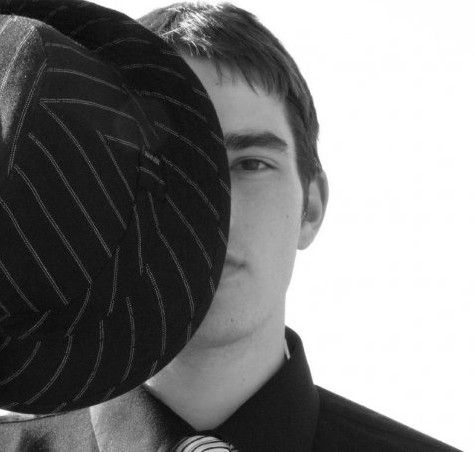
Today’s Great Expectations
by Alex Nall
Our British
Survey 2 class just finished reading
Charles Dickens’ masterpiece
Great Expectations and upon its completion a feeling of
satisfaction overcomes the reader. Although it is a bulky Victorian
novel, Dickens’ story is brimming with exciting characters, a plot
that swerves with surprises and suspense and ultimately concludes on
a hopeful note for the future. The story centers on an orphan
named Pip and his transcendence into high society via a mysterious
fortune that he is to inherit from an anonymous donator. Pip’s
journey is not easy and Dickens does this to show the harsh reality
of aging in a changing society. The novel is a bildungsroman, a
novel that chronicles a protagonist’s coming-of-age. Pip fits this
category quite nicely considering at the start of the novel he is a
scared little boy who shamefully lies to his sister and his best
friend, Joe Gargery, a simple-minded but loveable blacksmith. Pip
soon transforms into a figure of high society when he comes into
possession of a vast fortune, of which he is not to know the
possessor of until he becomes of age (Dickens uses the benefactor’s
identity to include a great mystery within the novel). With this
transformation comes a degree of careless arrogance from Pip, a
trait that eventually leads him into situations with the law, the
love of his life and other characters in the novel. Other great
characters in this novel include Miss Havisham, a spinster who lives
in a rundown mansion and hasn’t seen the sun in years; Herbet, Pip’s
best friend (And from the way Herbert speaks to Pip, you’d wish he
was too), and an escaped convict that periodically shows up
throughout Pip’s life. All of these characters intertwine throughout
Pip’s adolescence and adulthood and arrive at a turning point, not
only in each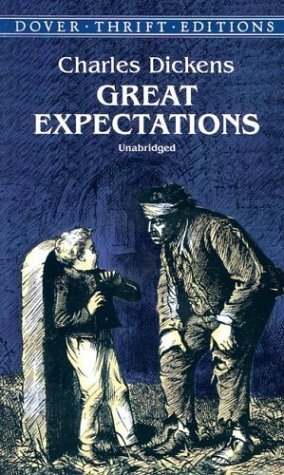 other’s lives, but the world’s as well.
other’s lives, but the world’s as well.
One of Dickens’ themes in the novel
is acknowledging the Industrial Revolution as a great event that forever
changed the lives of workers alike, but at the same time was to be
cautioned for the impending consequences that came with that
societal change. Pip is a great representation of a country
undergoing a transformation in its political, secular and economic
fashion. However, it is Joe who ultimately gets the most important
line in the novel. After paying a visit to his now-wealthy friend,
Joe senses the embarrassment he has caused Pip
due to his inability to read or properly present himself in front of
London’s prestige. Speaking simply, Joe states
“Life is made of ever so many partings welded together, as I may
say, and one man’s a blacksmith, and one’s a whitesmith, and one’s a
goldsmith, and one’s a coppersmith...I’m wrong in these clothes. I’m
wrong out of the forge, the kitchen, or off th’ meshes” (215). It is
in this one paragraph that Joe clearly illustrates Dickens’
criticism of class distinction- a part of life that changed for
hundreds of people with the coming of the Industrial Revolution.
Dickens wanted to make sure that readers of his time period
understood that without workers, the state is nothing and while Joe
may not be the sharpest tool in the forge but he knows where he
belongs, as opposed to Pip who is still undergoing his great
expectations.
Many students can share in Pip’s
experience as our own country moves forward into a new decade full
of possibilities for the future in the areas of economics, global
politics and alternative ways of living. Dickens’ Great
Expectations is full of moments where readers can reflect on their
own lives- whether they be a down-and-out Pip or an hardworking soul
like Joe- and realize that even one hundred and fifty years after
its original publication, Great Expectations has many things to
show them.
Courses to Keep an Eye
on Next Year

Fall 2010
English 180: Introduction to
Literature
(Willhardt)
English 210: Creative Writing—Practice in the writing and critical analysis of imaginative
literary forms, especially poetry and fiction. (Bruce)
English 220: British Survey—Beginning with the canonical alliterative
epic
Beowulf
and continuing through the works of Samuel Johnson in the eighteenth
century, this course covers roughly ten centuries of British
literature. Our goals in this course are twofold (at least): to
provide a chronology of (mostly) canonical British literature and to
develop a sense of literary historicity as well as to think deeply
about literature rooted in cultures simultaneously comparable to and
disparate from our own. The poetry and drama of times distant—in Old
English (Beowulf),
Middle English (Chaucer), and early modern English
(Shakespeare)—challenge us to consider the value of studying
literature: what are the values of literary study as a window into
other lives, times, and cultures? What is the value of literary
analysis as a mirror—providing insight into our own desires,
motives, and subjectivity? For more information, see
http://personal.monm.edu/mmb/English-_220/index.html please note
that this site has not been updated for the Fall 2010 course.
(Belschner)
English 224: Survey of American Literature I— This
course is the first, introductory survey focusing on the myths,
poetry, political essays, and fiction written from the Colonial
American era through the Civil War. This course will emphasize
literary, cultural, and historical movements through our study of
short stories, essays, and poetry by influential and important early
American writers. We will address major themes and movements in
American literature and also, hopefully, gain an understanding of
how American identity has been defined, interpreted, and
re-interpreted through American literature to the Civil War. (Bruce)
English 310: Advanced Creative
Writing—Students write intensely in fiction or poetry,
individually selecting their subject matter throughout the course.
Students sharpen their critical skills by evaluating one another's
work and by investigating contemporary writing and publishing.
(Bruce)
ENGL 347: African American
Autobiography and Fiction—This
course uses slave narratives and 19th/20th century autobiographies
to set up a study of African American fiction. Among titles:
Richard Wright's Black Boy, Ralph Ellison's Invisible Man,
works by Alice Walker, Toni Morrison, and Toni Cade Bambara.
Students write a chapter in their own autobiographies as one
important assignment. (Watson)
ENGL 348: Modern British Novels—Why
did the novel change so radically at the beginning of the twentieth
century? How does fiction reflect and reinforce the anxieties of the
age? What solutions does it present to some of those anxieties? This
course will cover works written from 1906-1925 and will include H.G.
Wells’s Tono-Bungay, Joseph Conrad’s The Secret Agent,
D.H. Lawrence’s Sons & Lovers, Ford Madox Ford’s The Good
Soldier, Rebecca West’s The Return of the Soldier, E.M.
Forster’s Passage to India, and Virginia Woolf’s Mrs.
Dalloway. We will examine the books in historical context and
also consider such issues as visual art, music, popular literature,
the world wars, politics, imperialism, sexuality, and gender.
(Hale)
TEDP 371:
(Roberts)
Spring 2011
English 180:
The
Return of Sherlock Holmes and Other Detectives—English
180 seeks to encourage life-long reading through appreciation of
literary language and form. The course will emphasize examination
and comparison of literary genres, structure and form in fiction,
and New Critical analysis (point of view, plot, setting,
characterization, diction, imagery, metaphor and symbol, theme,
etc.). In particular, the course will place detective writing of
nineteenth-century Britain and Australia in the context of pertinent
historical and cultural settings, while examining categorical
assumptions about “popular” and “serious” literary treatments with a
focus on Arthur Conan Doyle’s canon of stories regarding Sherlock
Holmes. (Roberts)
English 200: Introduction to English Studies—This course is a gateway to the English major. It is designed to
introduce majors and minors to the broad range of scholarship and
practice within the discipline of English. Included will be emphasis
upon close reading and research skills, as well as overviews of the
history of the discipline, creative writing, literary criticism and
theory, and vocational paths. (Hale)
ENGL 201: Grammar
(Roberts)
ENGL 210: Creative Writing
(Bruce)
ENGL 221: British Survey II
(Hale)
ENGL 225: American Survey II (Watson)
English 250: Shakespeare on Film—This one-credit course is only available to those students who are
already enrolled in Shakespeare's Tragedies and Romances. Bi-weekly,
students will view a film version of the play discussed in 362;
students will meet for an hour on opposing weeks to submit a journal
entry and discuss the film. Films may include Parker's
Othello,
Luhrmann's
Romeo + Juliet,
and Greenaway's
Prospero's Book
among others. Also, Julie Taymor (Titus)
is releasing a new version of
The Tempest
in 2010! Students will be introduced to film theory and criticism.
The additional reflection on the films will definitely enhance
understanding of the plays--and these are exciting, innovative
adaptations to boot! This one-credit course does not count as a
full course toward the major requirements and awaits the final
approval of the faculty Curriculum Committee. (Belschner)
English 301: Advanced Composition—Better
entitled “Literary Nonfiction” this course is a complement to the
two creative writing courses offered by the Department. A
craft course, we will work on understanding the various subgenres of
literary nonfiction by reading widely and writing copiously.
The idea is to learn to tell true stories, but tell them as if they
were fiction, keeping in mind ways to generate character, scene,
plot, and that most elusive of all elements, style. (Willhardt)
ENGL 349: Hawthorne and Melville—This
course takes on the short fiction and a couple of blockbuster novels
of two New Englanders who knew each other. Melville admired the
older Hawthorne and sought to make Nat a spiritual mentor. He
wanted Hawthorne's approval and received it . . . at a distance.
Yes, we hunt the great white whale in this course and thereby
discredit the cynical definition of a classic: "A book everyone
talks about and no one has read."
(Watson)
English 350: Seventeenth Century Poetry and
the Self—
"Cogito ergo sum"--"I
think, therefore I am."
The first half of the term
will be devoted to poets including but not limited to William
Shakespeare, John Donne, Andrew Marvell, Katherine Phillips, and
Robert Herrick, and the second half of the term will focus
predominantly on John Milton's
Paradise Lost.
Close readings of the poetry will consider the new sense of self--of
interiority--that appeared in the seventeenth century and that
prefigures the Cartesian self: "I think, therefore I am". This
sense of self creates new types of relationships between individuals
and the sacred, between marital and sexual partners, and between
readers and authors that strongly impacts how we understand our
selves in relationship to God, our partners, and our literature
today. We will also compare earlier visual art to seventeenth
century art for signs of this change in the sense of self.
(Belschner)
English 362: Shakespeare's Tragedies and
Romances—This course will
explore the themes and characters of Shakespeare's most exciting
plays including
Othello,
Hamlet,
Romeo and Juliet,
and
The Tempest.
Class discussion will emphasize the major
questions of these plays--What motivates Iago? Why doesn't Hamlet
act sooner? What is
wrong
with Romeo?--as well as closely examine the language, structure,
genre, historical context, and major themes of these plays.
Students will watch a film or two but those students interested in
immersing themselves in Shakespearean film should also enroll in
English 250 Shakespeare on Film. The midterm project will be a film
interpretation of a theme or scene and the final project will be a
formal essay. Please see
http://personal.monm.edu/mmb/Shakespeare/index.htm for more
information; note that the site has not been updated for Spring
2011. (Belschner)
ENGL400:
Senior Seminar
(Willhardt)
Survey Says!!!!

Who is your favorite female
writer?
 Allison
Bechdel is a great writer whose graphic memoir
Fun
Home shows her capability to transfer in images and words. She refers
to classic works of art, literature, feminine independence and gay/lesbian
themes throughout her
memoir and her comics. A sma Allison
Bechdel is a great writer whose graphic memoir
Fun
Home shows her capability to transfer in images and words. She refers
to classic works of art, literature, feminine independence and gay/lesbian
themes throughout her
memoir and her comics. A sma rt,
seriously sad
and depressingly funny writer. rt,
seriously sad
and depressingly funny writer.
-Alex Nall
Shirley Jackson, at the moment.
-Alex Kane
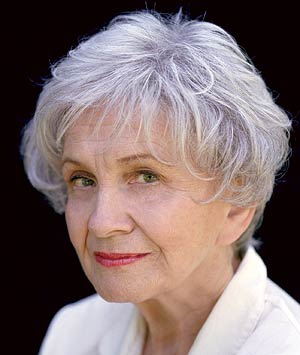 AliceMunroCharlotteBronteLucilleCliftonSandraCisnerosJeanThompsonDeniseMinaLouiseErdrich-KathaPollittMarieHoweJKRowlingToniMorrisonVirginiaWoolf(does
that count as one?) AliceMunroCharlotteBronteLucilleCliftonSandraCisnerosJeanThompsonDeniseMinaLouiseErdrich-KathaPollittMarieHoweJKRowlingToniMorrisonVirginiaWoolf(does
that count as one?)
-Erika Solberg
 It's
a tie between Zadie Smitha and Jhumpa Lahiri. It's
a tie between Zadie Smitha and Jhumpa Lahiri.
-Laura Dumont
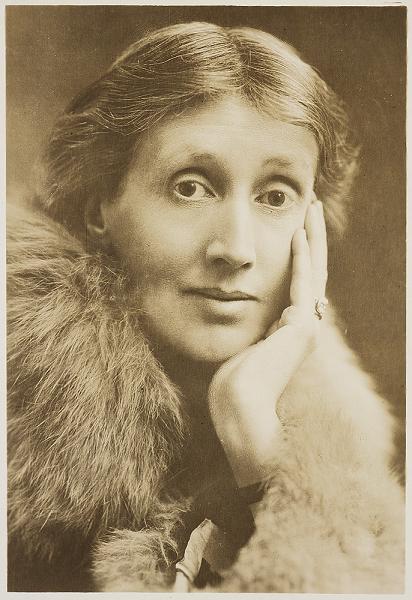 Alas,
I can't pick a favorite. Virginia Woolf, Charlotte Bronte, Kate Chopin,
Flannery O'Connor, and Mary Elizabeth Braddon are near the top of my list. Alas,
I can't pick a favorite. Virginia Woolf, Charlotte Bronte, Kate Chopin,
Flannery O'Connor, and Mary Elizabeth Braddon are near the top of my list.
-Rob Hale
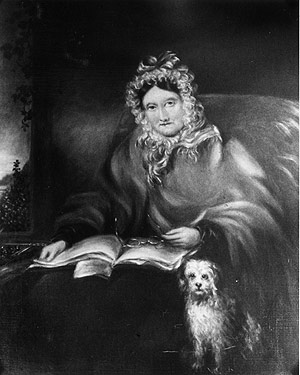 Dorothy
Wordsworth Dorothy
Wordsworth
-Ivy Becker
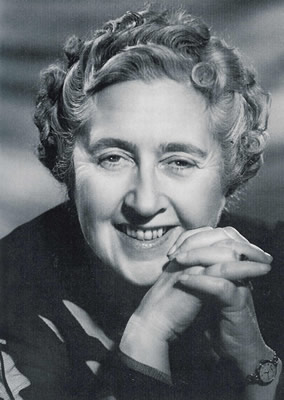 My
favorite female writer is Agatha Christie. Read
Ten Little My
favorite female writer is Agatha Christie. Read
Ten Little
Indians and
A Death in the Clouds and try not to
like her.
-Danny Weber
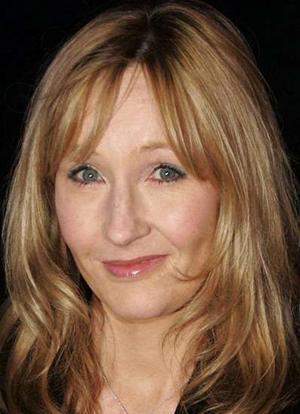 J.
K. Rowling J.
K. Rowling
-Tiffany Lefler
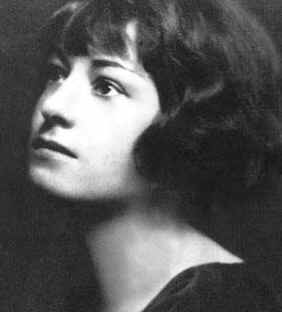 My
favorite female writer would be a tie: Dorothy Parker and Eudora Welty. I met
Eudora and she was great. One of my undergrad professors was a protégé and
Eudora would send our class Bourbon cookies—a very happy class! My
favorite female writer would be a tie: Dorothy Parker and Eudora Welty. I met
Eudora and she was great. One of my undergrad professors was a protégé and
Eudora would send our class Bourbon cookies—a very happy class!
-Kevin Roberts
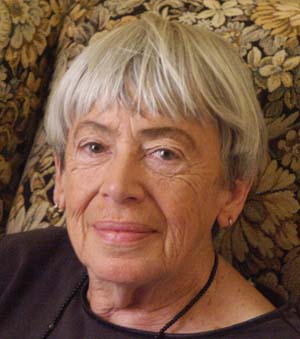
I happen to think Ursala K. Le
Guin is amazing.
-Wesley Teal
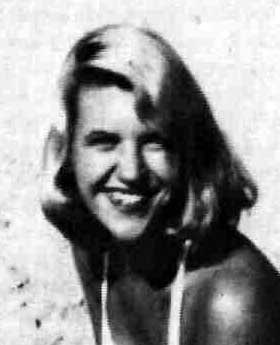
Sylvia
Plath!
-Kayt Griffith
|



 any
language.
any
language. 




 other’s lives, but the world’s as well.
other’s lives, but the world’s as well.





 Alas,
I can't pick a favorite. Virginia Woolf, Charlotte Bronte, Kate Chopin,
Flannery O'Connor, and Mary Elizabeth Braddon are near the top of my list.
Alas,
I can't pick a favorite. Virginia Woolf, Charlotte Bronte, Kate Chopin,
Flannery O'Connor, and Mary Elizabeth Braddon are near the top of my list.

 J.
K. Rowling
J.
K. Rowling My
favorite female writer would be a tie: Dorothy Parker and Eudora Welty. I met
Eudora and she was great. One of my undergrad professors was a protégé and
Eudora would send our class Bourbon cookies—a very happy class!
My
favorite female writer would be a tie: Dorothy Parker and Eudora Welty. I met
Eudora and she was great. One of my undergrad professors was a protégé and
Eudora would send our class Bourbon cookies—a very happy class! 

